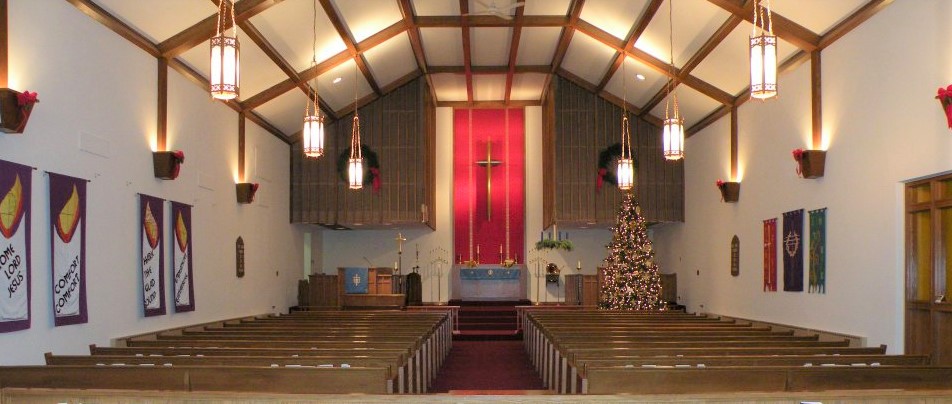May 24, 2020
E7A 2020 John 17:1-11
This week I was going through boxes, and I found several greeting cards from a member of my first parish. They were cards for different occasions, but they were all by themselves, not with any other Christmas or birthday or thank you cards from anyone else. I think I must have set them aside when, after surviving for months more than the doctors predicted, cancer finally took her. She was a feisty, funny, tiny woman with a delightful Southern drawl who just spread joy to those around her. I spent a few minutes reading through those cards, remembering the times I would sit in her kitchen and look at her collection of vintage salt & pepper shakers, and the afternoons we’d eat Dilly Bars from the Dairy Queen on the way to the hospice center, because she still enjoyed ice cream even when she had mostly lost her appetite. To be honest, I hadn’t thought of her in a long time, but finding those cards made me remember and made me ask myself if I’ve been reflecting any of the joy that she shared with me when she was still here since she’s not longer with us to spread that joy herself.
Today we listen to Jesus as he prepares for the time when he would no longer be here. We have come to the last Sunday in the Easter season and the end of Jesus’ long goodbye in John’s gospel. Thursday was Ascension Day when Jesus returned to heaven; next week is Pentecost when the Spirit arrives just as Jesus promised. But today we hear Jesus pray on behalf of his disciples before his arrest; they get to overhear him asking the Father to protect them, to unite them, to instruct and empower them. And I have to believe it is for their benefit as they’re listening that he says, “And now I am no longer in the world, but they are in the world.” Jesus was preparing for death, resurrection, and ascension to heaven, but his life would not be over. We’ve been reading these past several weeks his promise that through the work of the Spirit he would continue to abide in his disciples, that they would live in one another. Jesus physically wasn’t going to be there any more, but the disciples were. Jesus isn’t here anymore, but we are.
You may be tired of hearing me say that most of the good news of the gospel is not about what happens after we die; most of the good news, the promise and the responsibility that come to us through scripture, is about this life we’re living now. That couldn’t be any clearer than verse three where Jesus says, “And this is eternal life, that they may know you, the only true God, and Jesus Christ whom you have sent.” And how is it that we know Jesus? Through the record in scripture of, as he himself says it, him finishing the work God gave him to do; but also through those whom he left in the world, the disciples, the body of Christ on earth, which is all of us, the church. We don’t get to put our sandals on and wander around Palestine with Jesus, listening to him preach and teach and watching him heal and raise the dead. But we do have one another; we give and receive Christ to and from each other.
The problem, of course, is that as broken, sinful human beings, we don’t always do a good job of being Christ to others or recognizing Christ in others, even though that’s the work Jesus has left us in the world to do. If we are going to follow Jesus’ way, we are charged with doing the same work that the Father gave Jesus: including those whom society has excluded, feeding the hungry, healing the hurting, giving abundantly, serving selflessly. It’s all-consuming work which is difficult for us, since our natural inclination is to turn inward toward our own wants and needs instead of looking out at those who need us. But again, we are not expected to do God’s work without God’s help. Jesus prayed in the hearing of his disciples, but he wasn’t praying to them, he was praying for them. He prayed that the Father would equip them to carry on as Jesus himself had. Jesus was not about to leave us to our own devices.
I keep thinking about that stack of the parishioner’s greeting cards that I’ve kept, now through two moves. I supposed I could keep them in a box of momentos, or hang them on the refrigerator, or pin them up on my office bulletin board. But a better way for me to keep her legacy alive is to share with others the joy that she so freely shared in her life. That’s how those of us who knew her keep her presence and influence alive in this world. How is Christ calling you to share his love with the world? However that may be, remember that Jesus himself has already asked God to help you do it. So let’s let God get to work.

